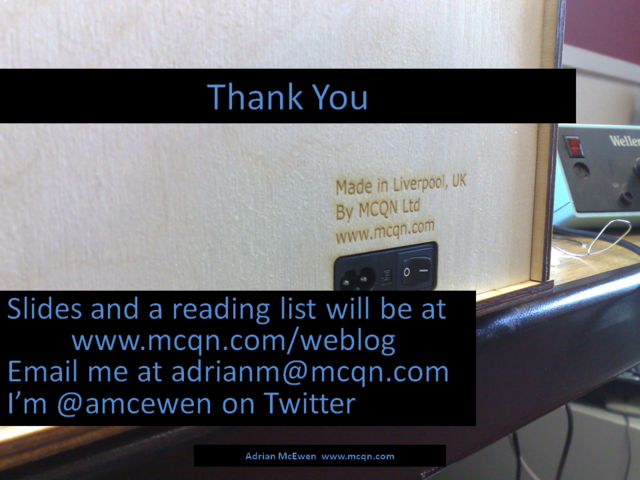At the start of July I was down in Reading for a Constructing Excellence Berkshire event to explore technology and cities. Together with architects HOOP and urban provocateur Julian Dobson we tried to design something a little different to the usual talks or workshop.
With the help of Professor Tim Dixon we kicked off setting out the local situation and how technology could evolve in our towns and cities - with Tim providing a Reading perspective and me presenting some alternative "smart" city thoughts.
The attendees and presenters then split into two groups to discuss and brainstorm an open-ended question of what a smart city might look like.
Then, following a break for some food and chatting, we came back together to hear Julian a more people-focused Luddite Analysis of Smart[er] Cities". After which we broke again into groups to imagine life a hundred years hence, and what decisions and actions from today we'd look back on as inspired, and which we'd find appalling.
The format seemed to work well, with plenty of discussion between everyone and plenty of ideas and opinions traded.
Read on for my slides and notes for the talk...
![Smart[er] Cities](/files/images/SmarterCities-CEBerks/Slide01.png)
Hello, thanks for asking me to take part today.
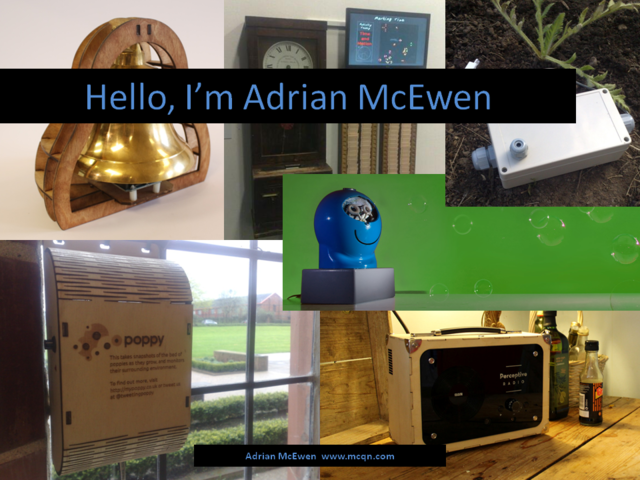
I'm Adrian McEwen, a creative technologist and consultant working in the Internet of Things and digital fabrication. I've also got an amateur interest in urbanism and cities, and I live in one and would like it to get nicer rather than worse as it embraces more technology.
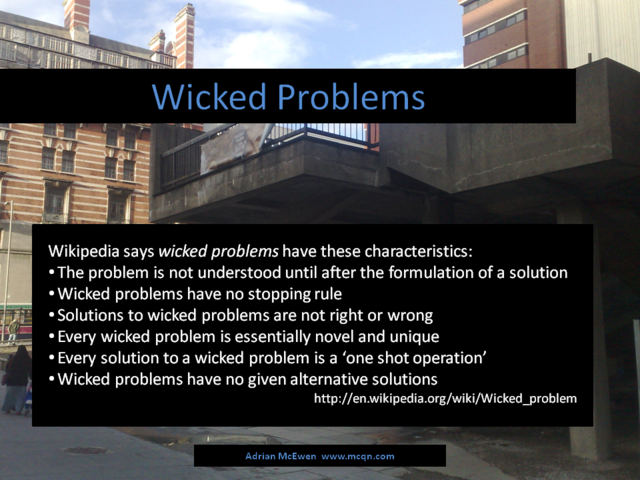
What problems are we looking to solve with the technology?
Is it just about solving problems?
Not necessarily, but I think we should acknowledge that cities are full of wicked problems. Ones that don't have neat, simple answers. What's best for cars, for example, might not be best for pedestrians. As you'll know, changing cities is about balancing these competing needs and power structures.
I'm not going to dig into things in any detail, but I wanted to take a whistle-stop tour through some of the questions that smarter cities pose.
Firstly, who is the smarter city for?
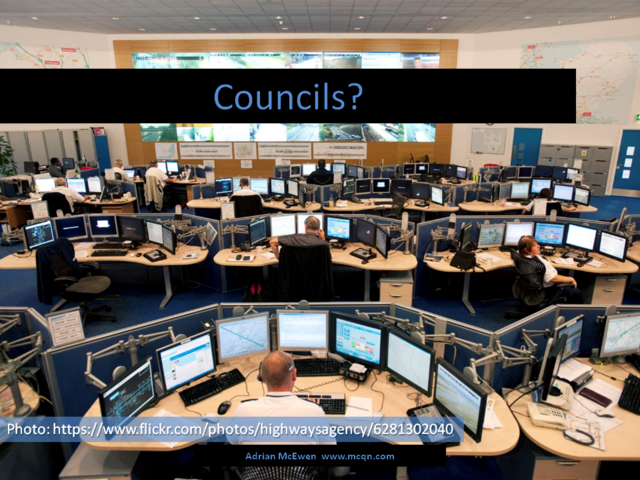
Does it help councils manage resources better and reduce costs?
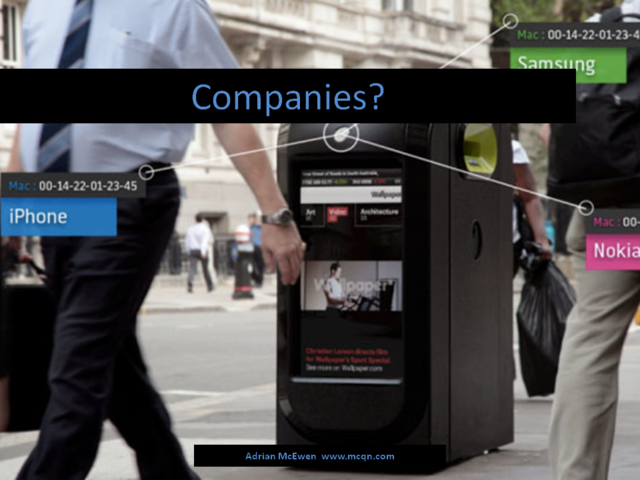
Is it for companies, who can deploy new sensors to gather more data to optimize selling us stuff?
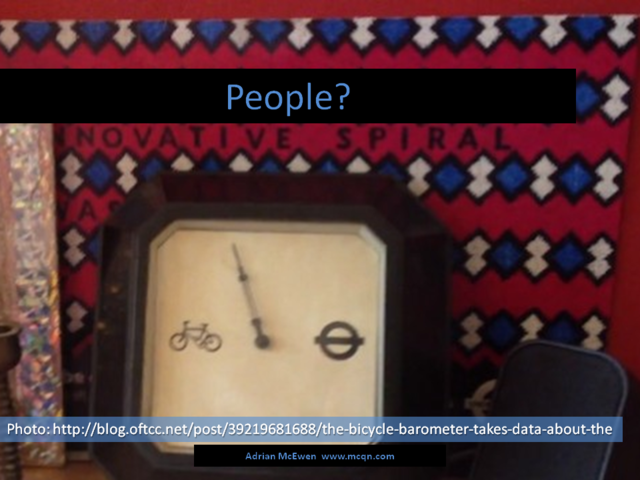
Or to empower citizens to decide what matters to them, like whether to cycle or take the tube to work.
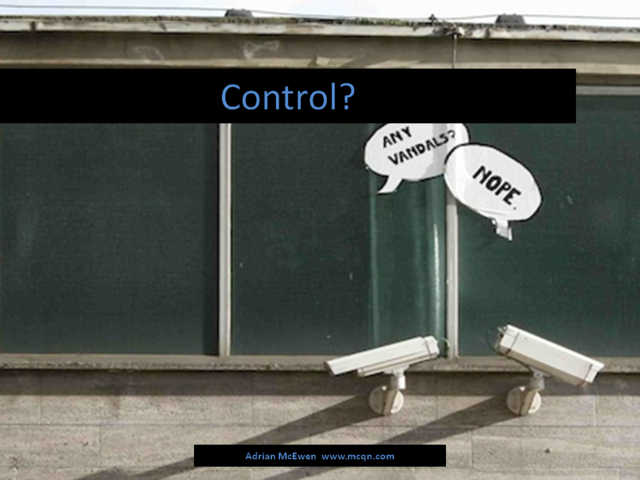
Are we looking for ways to watch and restrict what people can do?
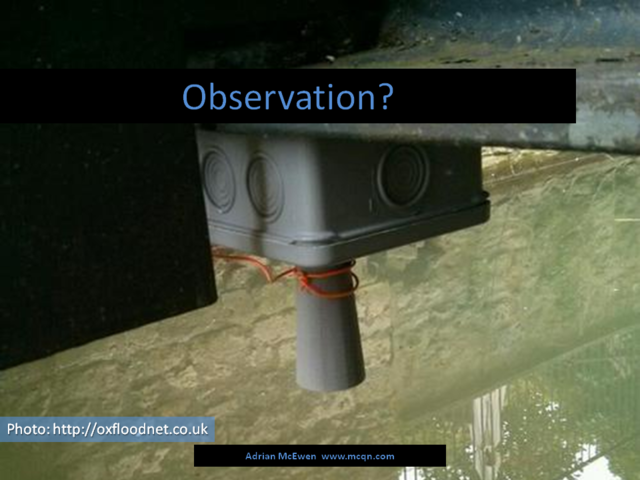
Or to enable them to measure and share data like this Oxford Flood Network citizen-sensing project
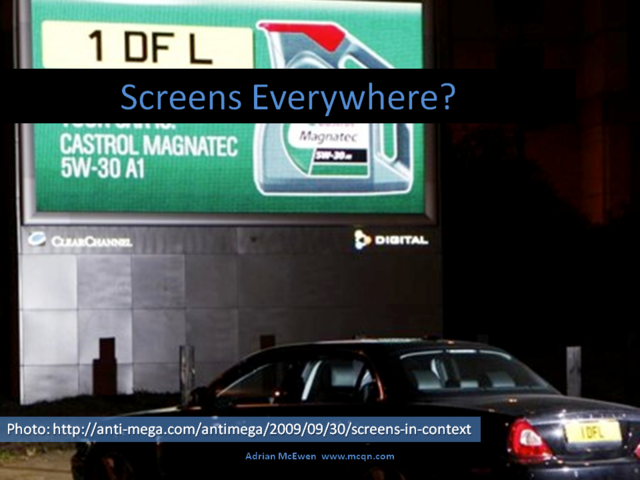
Will we just see more and more glowing rectangles, as the price of screens falls and falls, and they become the easy choice. Will they flood our environment?

Will we find ways to give them the smarts to be more useful with real-time displays?

Or make them less screen-like?

Solving parking problems with things like this parking sensor is a common use case cited for smart cities. Are we sure that's not solving today's equivalent of the early 20th Century horse manure issue?
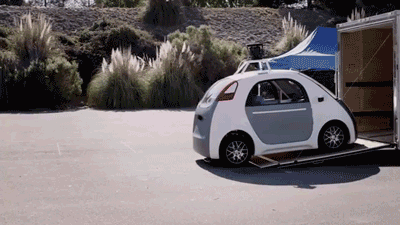
Maybe we'll all swap our cars for just-in-time summoning of self-driving cars
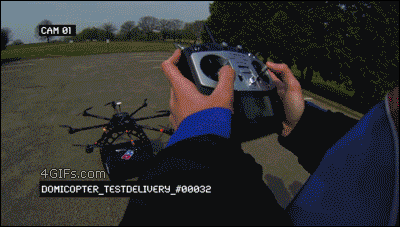
Or replace chunks of the traffic with unmanned aerial vehicles?

Or get the humans onto alternatives. Maybe we'll use trains for travel between major population centres, hire bikes for short distances, and self-driving cars to cover the personalised "final leg" problem

The big chainstores are continually looking for ways to automate and reduce staff costs.

Will our high streets move to a model where we don't have any interactions with shop assistants at all?

Or maybe checkout assistants will become obsolete, and there'll be a mix of Amazon locker-style shop-size vending machines and small, personable, independent shops, where the interaction with other humans is effectively a selling point of the brand.

In the same way that computers started as something only big companies could afford, and then became something for everyone, maybe the same will happen with automation.
Could it enable a proliferation of urban farms?

Or will 3D printers, laser-cutters and the like allow manufacturing to move back to more local production, with a flourishing of craftspeople for a modern age?

There are some dangers with blindly adopting this technology.
It is often presented that given enough sensors and enough data, we can solve all the problems. But given enough data you can also draw almost any conclusion. Does US science spending really affect the number of suicides?
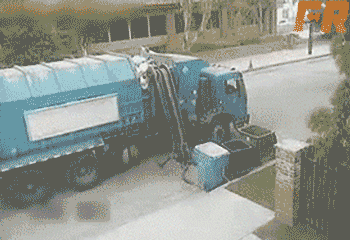
The algorithms are also likely to be imperfect, and glitchy, at times. We'll need systems that can cope with such failure, and that will also allow exceptions to work round their programming.
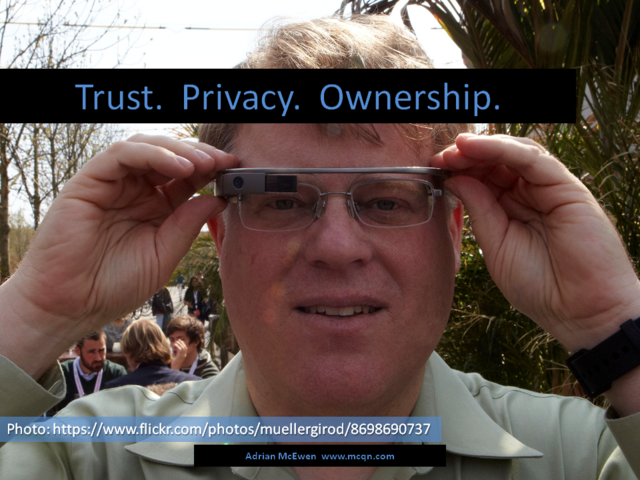
Not to mention the issues around privacy, and ownership of all this data

Maybe some of the design guidelines from Internet will help us find our way.

We should avoid big monolithic seamless designs, and instead build groups of small, focused pieces, which can be pulled together and remixed by us, or by others, to adapt to new situations.
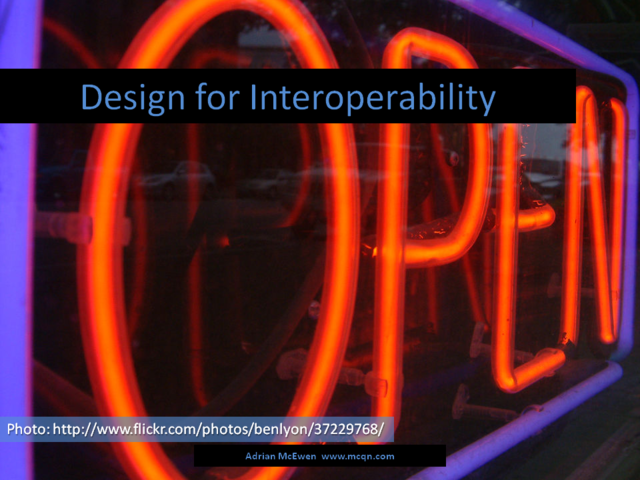
And look to make the services as open and interoperable as possible. People will invent new, useful tools and applications that you'd never dream of.
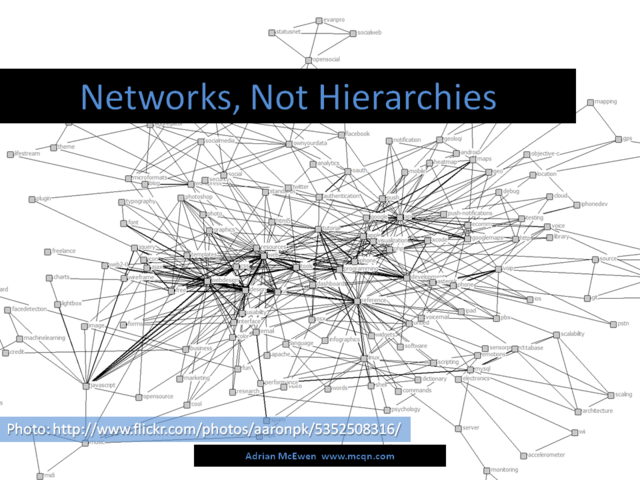
Think more about how all the parts of the system interact as a network, rather than as a hierarchy of control.
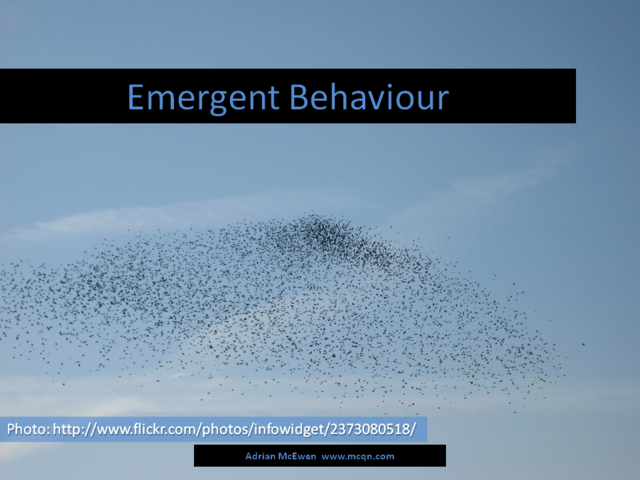
And expect and embrace the emergent behaviour of the system. We won't know it all when we're designing it.
It will be somewhat messy, like life, but we should embrace a bit of anarchy.
